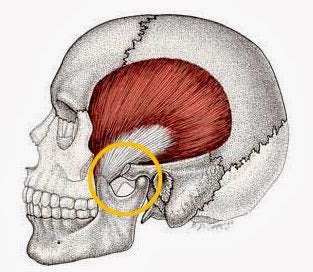-
Affordable Dentist Glendale Heights – Is Your Jaw Sore?
Temporomandibular disorders (TMD) and temporomandibular joint disorders (TMJ) are issues you experience with your jaw, as well as the joint and facial muscles surrounding your jaw. This can cause stress and discomfort in your daily life. Symptoms of TMD include tension and tenderness in your face or jaw, difficulty with opening your mouth wide, locking or clicking or your jaw, difficulty in chewing, a tired feeling in your face, and swelling on the side of your face.
Your affordable dentist Glendale Heights can examine your jaw in order to diagnose TMD. Your dentist will check for locking of the jaw while opening and closing your mouth. Additionally, your bite and facial muscle function will be examined, and your dentist will evaluate your jaw pain and tenderness. In some cases, x-rays will be taken to check your jaw, jaw joint, and teeth for irregularities.
It can be difficult to diagnose TMD and TMJ because the symptoms of these are similar to symptoms of other health issues such as toothache, arthritis, and sinus problems. However, you should schedule an appointment with your affordable dentist in Glendale Heights if you experience any of the symptoms of TMD and TMJ.
There are precautions your Glendale Heights affordable dentist recommends to avoid TMD and TMJ problems from arising. First, you can avoid hard foods and excessively chewing gum. Although gum can have many oral health benefits such as preventing cavities and tooth decay, it can tire your jaw and cause some soreness if you are not accustomed to regularly chewing gum.
Another way to prevent TMD problems is to develop and practice relaxation techniques to reduce tension in your face and jaw. Clenching, especially in your sleep, can cause tension in your jaw, so you can reduce soreness by learning to relax your jaw. For example, by placing the tip of your tongue at the roof of your mouth, your jaw will automatically relax, reducing some of the tension. If you struggle with clenching your jaw while you sleep, you may want to consider getting fitted for a mouthguard from your affordable dentist Glendale Heights IL .
If you are feeling soreness or tenderness in your jaw, you should schedule an appointment with your affordable dentist in Glendale Heights IL in order to receive a proper diagnosis and to explore your options. Your dentist can help you to maintain a beautiful, healthy mouth that is free of discomfort.

Zishan Bader
Please click below if you liked this article -
Pick Up A Pack (Of Chewing Gum)
If you are in the habit of chewing sugarless gum on a regular basis, you’ll be happy to know that this can have a positive effect on your oral health. It is a simple way to give your oral health a little boost. If you don’t typically chew gum, your dentist Glendale Heights recommends picking up a pack.
Chewing gum increases the flow of saliva in your mouth. Your saliva washes away acids, sugars, and food debris in your mouth, preventing tooth decay and cavities. The flow of saliva can help to strengthen your tooth enamel, helping you to maintain strong, beautiful teeth. Your dentist in Glendale Heights recommends chewing gum right after you eat for about 20 minutes to best fight off cavities caused by food consumption.
Chewing gum has aesthetic benefits, as well. It can ward off bad breath and brighten your smile. By washing away the food debris that may have remained in your mouth from your last meal, chewing gum rids your mouth of any lingering odors. Additionally, it prevents the acids and debris in your mouth from staining your teeth, leading to a healthier, whiter smile.
Not only does chewing gum protect your teeth, but it can also help your gums. Chewing gum reduces plaque build-up, which is a way to prevent gingivitis and periodontal disease. Although this is not a cure to gum disease, chewing gum is a helpful way to supplement your oral hygiene in between visits to your Glendale Heights dentist .
In order to maximize the benefits of chewing gum, your dentist Glendale Heights IL recommends that you look for sugar-free gum, specifically gum that has been sweetened with xylitol. Xylitol prevents harmful bacteria from lingering in your mouth, reducing your risk for cavities. Additionally, xylitol can help to repair damage to enamel, strengthening your smile.
While there are many benefits to chewing gum, there are also complications that can arise if you chew excessively. Frequent gum chewing can lead to inflammation and soreness in your jaw, causing TMD and TMJ. Also, you are putting stress on your facial muscles when you chew, which may cause headaches.
Although chewing gum can be beneficial to your oral health, it is still very important to floss daily and brush twice a day. Chewing gum should serve as a complement, not a substitute. Additionally, you should regularly schedule visits with your dentist in Glendale Heights IL to ensure that you maintain the best possible oral health.

Zishan Bader
Please click below if you liked this article
RECENT POSTS
categories
Archives
2017
2016
2015
- October (1)
- September (2)
- August (4)
- July (4)
- June (5)
- May (4)
- April (4)
- March (5)
- February (5)
- January (5)
